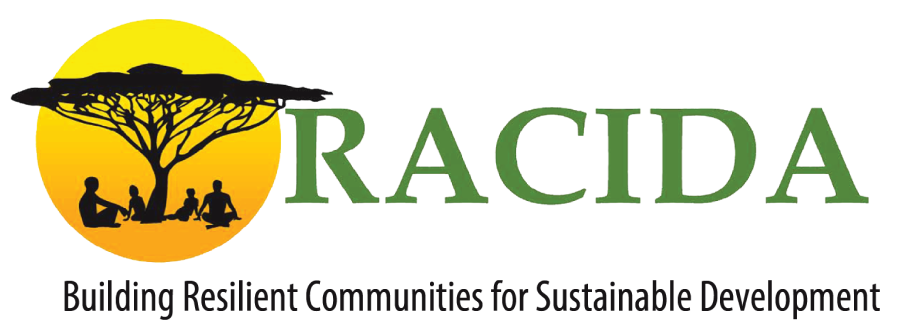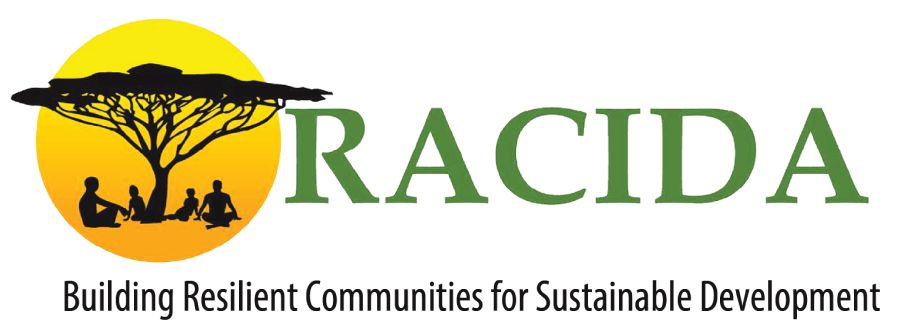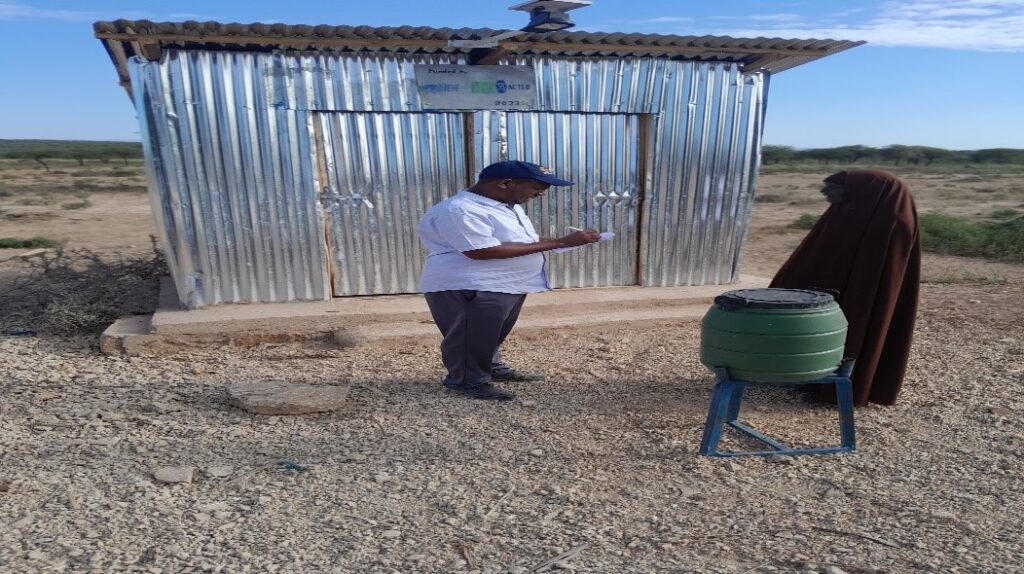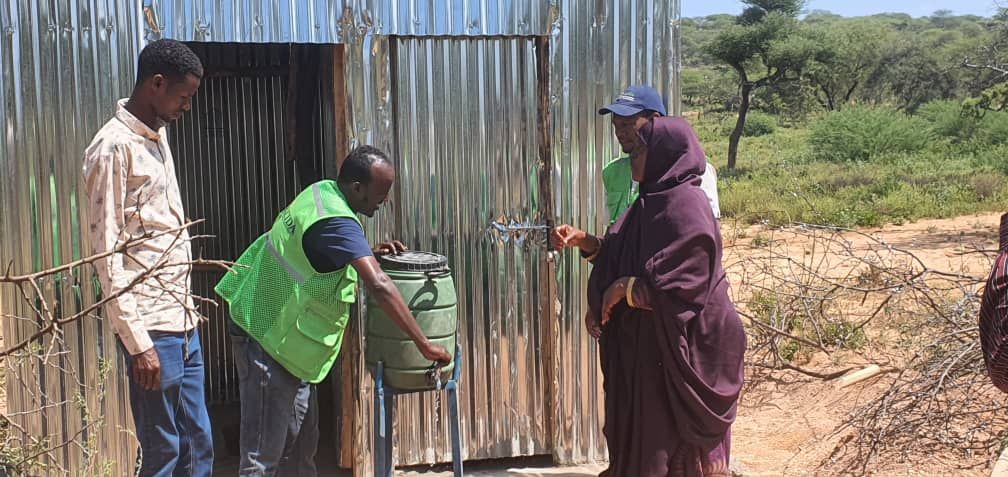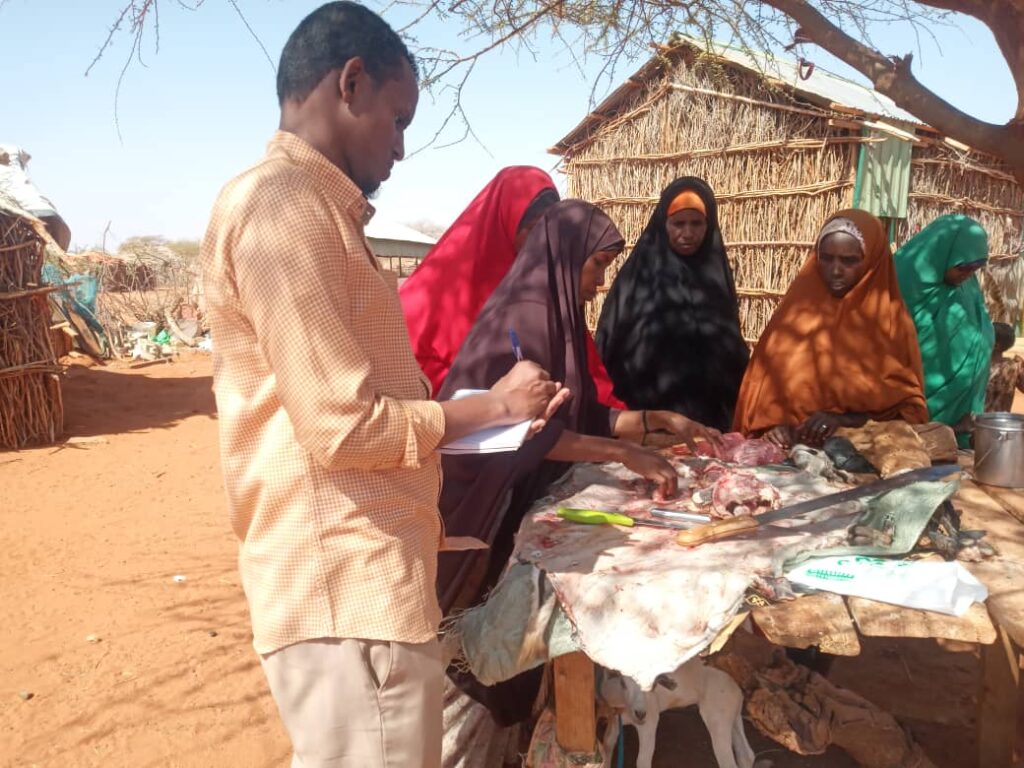Under the dry sun of Northern eastern Kenya, known for its ferocious heat during the dry spell of hagaay and jilaal, Owlia Bashane aged 37 looks her horizon with pessimism with regards to the ever present problems of drought and the related facts of water scarcity. The terrain of Kubi location is as rocky as ever and the heat of the day made people to seek shades in their Horis or the scarce dried tree shades that could be found around. Owlia Bashane was among those sitting under the tree shades listening to the ongoing conversation. We approached her and asked if she was willing to give us some information about the ongoing emergency program of water tracking.
Owlia agreed to our request and on our away to her hori we observed the presence of emaciated and weak shoats unusual sight during this part of the day as the livestock are expected to be out grazing, a stark pointer to the severity of the drought and not to mention the status of the children who are malnourished and scruffy, a status that pervade in the description of children and adults alike
On our promptings Owlia mentions water scarcity as one of the major problems they face everyday in their life.” we have plainly lived with the problem of water scarcity for so long. Both people and animals are affected alike.” She says. Men have migrated with the mobile herds, depriving them of milk and other support they would have provided, narrates Bashane. The caravan of camel that fetches water from the river take two nights to and from the village bringing with it 80 litres which is expected to lasts for four days. The water is shared with livestock. It’s their livelihood and they cannot stand apart. Bashane whose sunken eyes and wrinkled face barely befitting her age, narrates how they avoid bathing for as long there is water scarcity to minimise water usage. Due to the prevailing drought and subsequent lack of water, many people were forced to move from one area to another looking for water and this made it difficult to create a permanent settlement area for the community. This movement has forced many kids to drop-out of schools hence not getting education. The quality of water is also bad hence exposing the community members to the dangers of contracting water borne diseases such as dysentery, typhoid and cholera.
RACIDA a local NGO working in Mandera in collaboration with one of its major partners CORDAID have been undertaking a water trucking programme for more than 20 centres in the larger Mandera district to ease the suffering during their time of need. This was done together with other government bodies like ALRMP. They introduced the water tracking program by trucking water day and night and delivered to all these areas. RACIDA has also provided fuel to more than four strategic bore- holes as a subsidy since communities’ copying capacities has totally been reduced to nothing. These communities can no longer raise the water charges since their animals are very weak and with no price markets. Cattle and shoats were the most affected for tracking long distances and staying longer hours due to the pressure on these few boreholes.
The trucks that bring the rear commodity after every two days are emptied into one of the rain water harvesting tanks which is kept under lock and key by the water management committee members. With the little available water, the residents are allowed to draw the water on rationing basis with every household given 20 litre jarican for two days. Owlia a mother of eight children says I have not taken wudhu (purification for salah) for days now. “You can see my cloths have changed colour for they were not washed for months now.” She adds. The process is very expensive for many actors on the ground while the demand still appears untouched. This intervention of water trucking is not sustainable but a temporary life saving initiative. And all will not be well so longer the organization in this communities stays a part, a permanent solution to their water needs will never be achieved but may be, just a mere survival of chance
